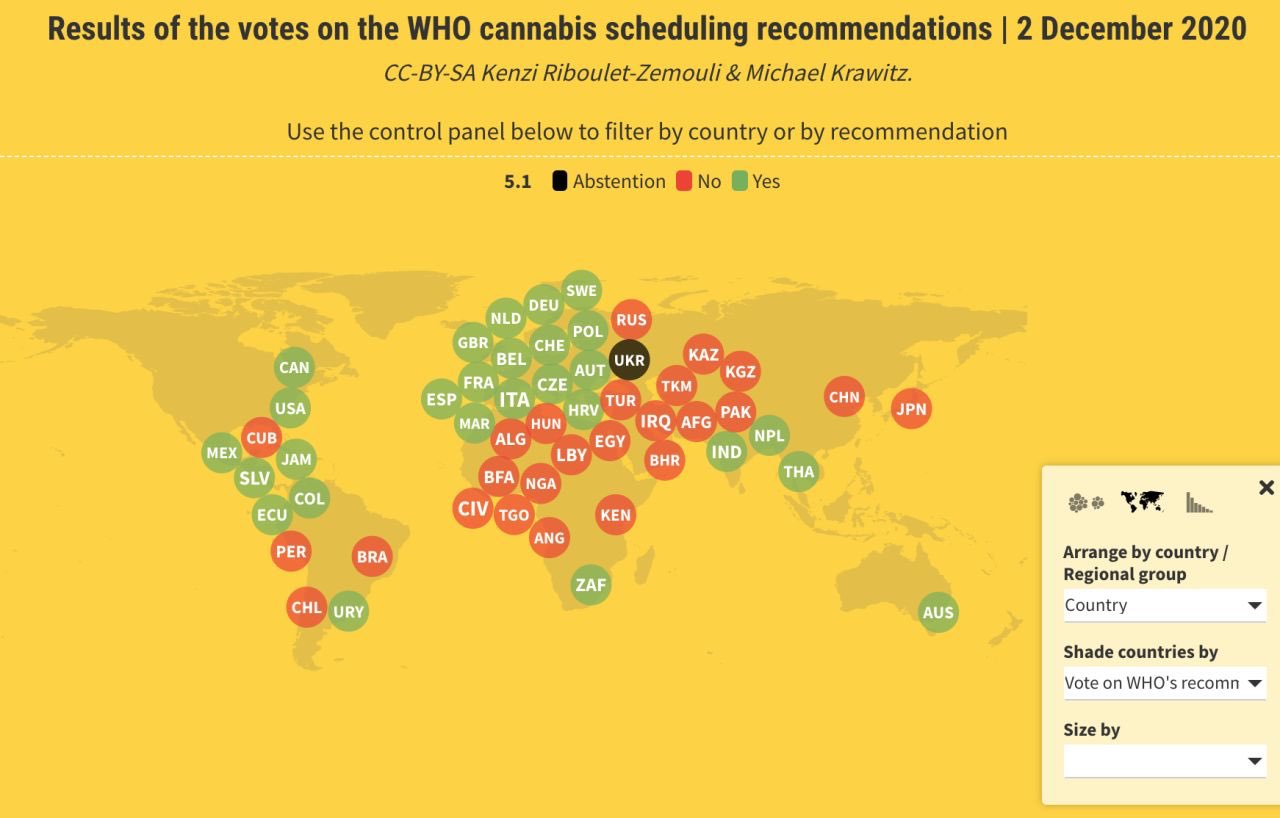A key United Nations (UN) panel approved a World Health Organization (WHO) recommendation to remove marijuana from the most restrictive global scheduling category on Wednesday.
With the backing of the U.S. government, the UN’s Commission on Narcotic Drugs (CND) adopted the proposal to delete cannabis from Schedule IV of the 1961 Single Convention.
This doesn’t mean that member nations are cleared to legalize marijuana, however, as it remains under the separate Schedule I of the international drug control system. But advocates say it demonstrates an evolution in how the international community views cannabis policy, as it formally recognizes the medical value of the plant and it could promote further research into its therapeutic potential.
WHO made six recommendations on global cannabis policy last year—and CND has held numerous meetings on the proposals. After numerous meetings and delays, members finally held votes at a meeting this week.
The proposal to remove marijuana from Schedule IV was arguably the most consequential of the reforms, and is the only one that was approved. (The international scheduling system differs from that of the U.S. in that the country’s most restrictive category is Schedule I.)
Here’s a rundown of the votes on the WHO’s cannabis recommendations:
APPROVED: Remove marijuana from Schedule IV of the 1961 Single Convention.
REJECTED: Add THC and dronabinol (synthetic or plant-derived THC medication) to Schedule I of the 1961 Convention and, if approved, delete them from Schedule II of the 1971 Convention.
REJECTED: If the second recommendation is adopted, add tetrahydrocannabinol to Schedule I of the 1961 Convention and, if approved, delete it from Schedule I of the 1971 Convention.
REJECTED: Delete “extracts and tinctures of cannabis” from Schedule I of the 1961 Convention.
REJECTED: Add footnote to clarify that CBD products containing no more than 0.2 percent THC are not subject to international control.
REJECTED: Add “preparations containing dronabinol” to Schedule III of the 1961 Convention.
The vote to move cannabis out of its restrictive scheduling status was close, with 27 countries in favor, 25 against and one abstention.
“The vote of the United States to remove cannabis and cannabis resin from Schedule IV of the Single Convention while retaining them in Schedule I is consistent with the science demonstrating that while a safe and effective cannabis-derived therapeutic has been developed, cannabis itself continues to pose significant risks to public health and should continue to be controlled under the international drug control conventions,” the U.S. delegation said in a statement.
“Further, this action has the potential to stimulate global research into the therapeutic potential and public health effects of cannabis, and to attract additional investigators to the field, including those who may have been deterred by the Schedule IV status of cannabis,” the country added.
